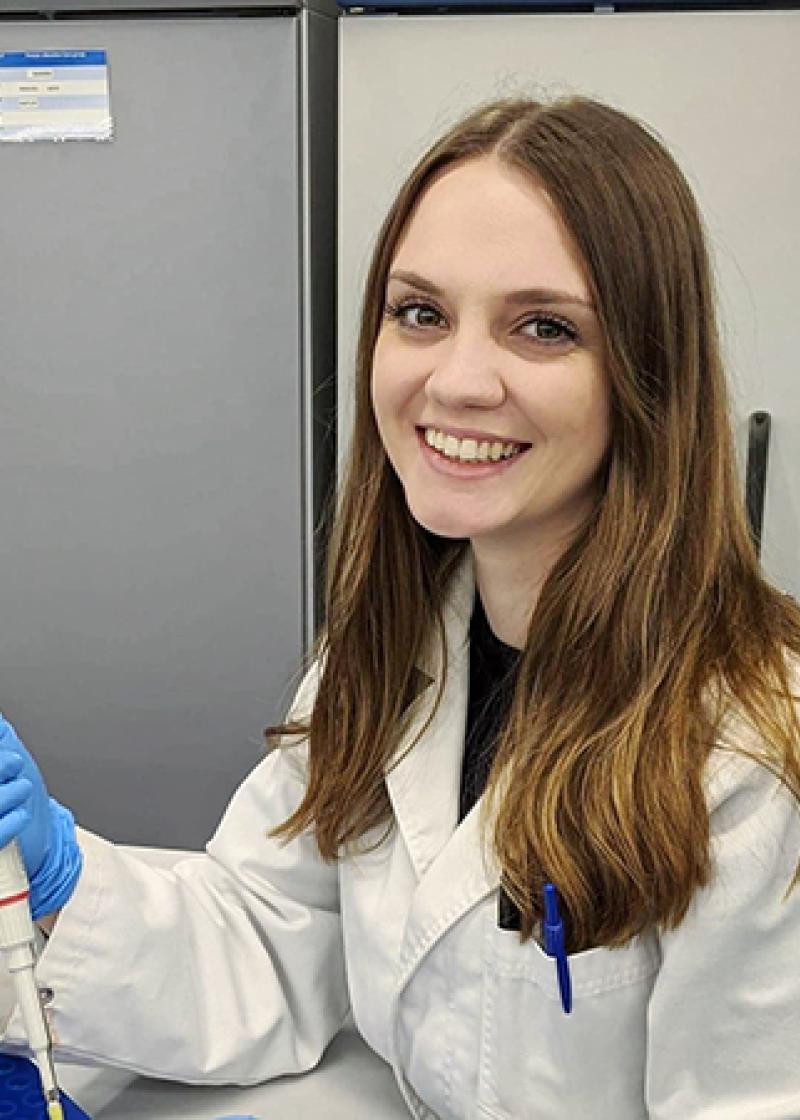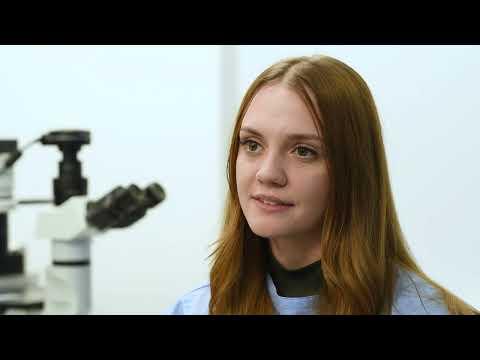India Boyton
"Cage vs Age": Development of an innovative nanotechnology to halt the spread of hyperphosphorylated Tau protein in Alzheimer's disease

Award
Bondi2Berry and Bondi2Brighton PhD Scholarship
Status
Completed
Start Date
11 March 2020
About the project
Alzheimer's disease is the most common cause of dementia, accounting for 60-70% of all cases. Current Alzheimer’s disease medications only alleviate symptoms and do not modify the underlying mechanisms that cause the disease. Consequently, finding an effective therapeutic for Alzheimer’s disease is of critical importance. One major contributor to the spread of Alzheimer’s disease within the brain is the transmission of abnormal forms of a protein called tau.
In this process, abnormal tau is released from diseased brain cells and taken up by neighbouring healthy brain cells, triggering the misfolding of the normal tau inside those cells. Thus, Alzheimer’s disease progressively spreads throughout the brain. Nanoparticles are tiny balls that can be engineered to package drugs and deliver them precisely to diseased tissue inside a patient, thus enhancing a drug treatment’s efficacy and improving the outcomes of patients. This project aims to harness the properties of unique nanoparticles found inside bacteria by re-engineering them into a novel nanotechnology that can be utilised to treat dementia.
These naturally-occurring nanoparticles will be altered into tiny drug carriers that selectively target and disrupt tau pathology, halting the progression Alzheimer’s disease inside the brain. To reach this goal, I will combine a set of novel tools and techniques found in protein engineering, drug delivery, pharmacology and neurobiology. This research has the potential to provide a disease-modifying treatment that would be of significant benefit to the millions of individuals living with Alzheimer’s disease.

Publications and presentations resulting from award
Boyton I, Goodchild SC, Diaz D, Elbourne A, Collins-Praino LE, Care A. Characterizing the Dynamic Disassembly/Reassembly Mechanisms of Encapsulin Protein Nanocages. ACS omega. 2022;7(1):823–36. https://doi.org/10.1021%2Facsomega.1c05472
Boyton I, Valenzuela SM, Collins-Praino LE, Care A. Neuronanomedicine for Alzheimer’s and Parkinson’s disease: Current progress and a guide to improve clinical translation. Brain, Behavior, and Immunity. 2023; https://doi.org/10.1016/j.bbi.2023.11.004
Rennie C, Sives C, Boyton I, Diaz D, Gorrie C, Vittorio O, Collins-Praino LE, Care A. In Vivo Behavior of Systemically Administered Encapsulin Protein Nanocages and Implications for their use in Targeted Drug Delivery. Advanced Therapeutics. 2023; https://doi.org/10.1002/adtp.202300360
Where are they now?
At the time of award, Ms Boyton was studying at Macquarie University.
